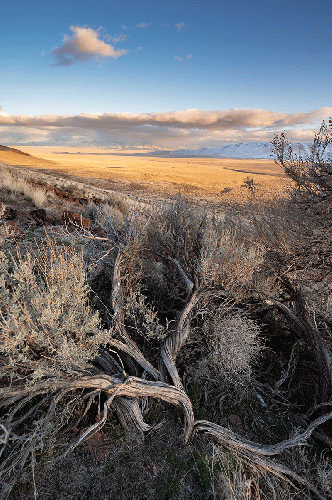After I reviewed IEEE's recent book about electric vehicles (EVs), I heard about an underground transformer that exploded 50 feet from an LA friend's house on a Saturday morning, typically a time of low-electricity-demand. I wondered: could charging several EVs cause a transformer to overheat and explode?
A reader of my review commented that investing in e-vehicles is like rearranging deck chairs on the Titanic.
Then, I talked with Max Wilbert. Max grew up believing that solar and wind energy and electric vehicles would help sustain our society. In his twenties, he learned how "renewables" and EVs actually depend on fossil fuels throughout their lifecycles. He teamed up with Derrick Jensen and Lierre Keith to write Bright Green Lies: How the Environmental Movement Lost Its Way and What We Can Do About It (2021). In 2020, after learning about a proposed lithium mine in Nevada, he started Protect Thacker Pass. This account came from conversations Max and I had in April and May, 2023.
Thacker Pass, Nevada
Max Wilbert
I started learning about lithium while researching battery energy storage for Bright Green Lies. Lithium is a light metal. In batteries, it can hold a high density of power, charge fast and last long. Lithium-ion batteries power mobile devices like smartphones, laptops, tablets, smartwatches and electric vehicles. The battery for a 3000-pound Tesla Model S' requires 138 pounds (62.6 kg) of lithium. The irony is not lost on me: corporations and environmentalists promote EVs because they don't emit greenhouse gases while driving. But manufacturing and discarding EVs""and expanding the power grid to charge them""ravage ecosystems.
I witnessed wind turbines chop up birds in Spring Valley, Nevada. In eastern Oregon, I saw swathes of native forests cut down for utility-scale solar. I've read about lithium extraction's prodigious water use in Argentina, Bolivia, Chile, Tibet""and at the U.S.'s first lithium mine, in Silver Peak, Nevada.
In 2017, research led me to Lithium Americas Corporation's (LAC's) plan to turn part of the Great Basin""a biodiverse and exquisite ecosystem between Boise and Reno known as Thacker Pass""into an industrial extraction zone stretching over more than 17,000 acres. Thacker Pass holds the U.S.'s largest known lithium deposits. The corporation's open pit alone would cover two square miles in the mine's first stage, and it could triple in size. Tailings piles, processing facilities and treatments ponds would sprawl across yet more land. The mine would burn 11,000 gallons of diesel fuel per day and rely on more than 75 semi-truck loads of sulfur (oil refinery waste) to process the ore. It would consume and pollute more than 1.5 billion gallons of water per year, dropping water tables and potentially drying out fourteen springs.
In the summer of 2020, when I learned that the Trump Administration was fast-tracking a permit to mine lithium at Thacker Pass, I had to visit.
Visiting Thacker Pass
Two friends and I drove to Thacker Pass in October, 2020. Almost entirely public land, you can pull off any dirt road and park without trespassing. The first afternoon, the heat and dust overwhelmed me. But then we climbed up a cliff overlooking the Great Basin. Rabbit-brush yellow flowers were in full bloom. At sunset, the pollinators came out in huge numbers and variety. Insects are such a barometer of ecological health. They struggle with chemicals and artificial light. At Thacker Pass, they had a haven.
For sixteen million years, stones, wind and water have shaped this place. Pronghorn hooves and pygmy rabbits have left footprints. Burrowing owls have protected their nests. Golden eagles have circled above the silent expanse. Lahontan cutthroat trout have flicked in the creeks.
The first morning, stepping out of my sleeping bag, I saw a red-tailed hawk feather at my feet, to the west. I turned slowly. A prairie falcon feather lay in the east, and two raven feathers in the south. To the north, Phasianidae""a sage-grouse feather.
My mind rebelled.
(Note: You can view every article as one long page if you sign up as an Advocate Member, or higher).






